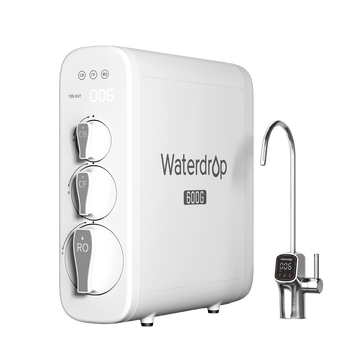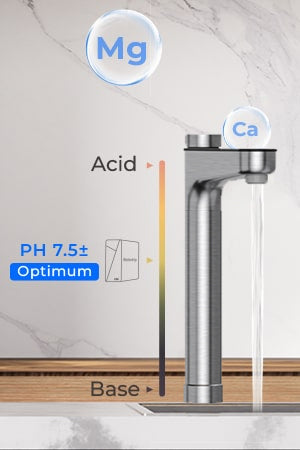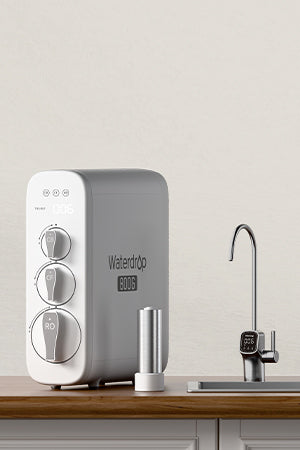Water plays a vital role in nearly every bodily function, and drinking enough water is the easiest way to stay healthy and happy. However, many people aren't familiar with the exact process that occurs when you drink water.
Where Does Water Go When You Drink It? This article will delve into the question, explaining the journey that water takes as it moves through the body and why this process is so important to health.
The Journey of Water Through Your Body
When you drink water, it doesn’t simply stay in your stomach. It follows a detailed pathway through your body, playing an integral role in various physiological processes.
Step 1: The Mouth and Throat – The First Stage of Hydration
As soon as you drink water, it enters your mouth. It travels quickly down your throat and passes through the esophagus, which is a muscular tube that connects the mouth to the stomach. The process of peristalsis —a series of muscle contractions—pushes the water toward your stomach.
At this point, the body is not absorbing water yet; the liquid is simply traveling through the digestive system. However, the act of drinking water triggers your body's readiness to absorb it, setting the stage for the next step in the process.
Step 2: The Stomach – Rapid Passage
Once the water enters your stomach, it doesn’t linger for long. Unlike food, which needs to be broken down over an extended period, water passes through the stomach rapidly, usually within 5 to 10 minutes. Depending on factors such as the fullness of your stomach, water may remain in the stomach for slightly longer, but it typically does not stay there for an extended period.
Although there is little absorption in the stomach itself, this stage is still essential. The stomach helps mix the water with digestive juices, preparing it for absorption in the small intestine, where the majority of water absorption takes place.
Step 3: Absorption in the Small Intestine
The small intestine is where the majority of water is absorbed into the bloodstream. This section of your digestive system is lined with millions of tiny, finger-like projections called villi. These villi significantly increase the surface area, allowing for the efficient absorption of water and nutrients into the blood.
After absorption, water is transported through the circulatory system, where it is distributed to various parts of the body. It reaches cells, tissues, and organs, providing hydration and supporting essential functions such as temperature regulation, digestion, and nutrient transport.
Step 4: The Kidneys – Filtration and Regulation
The
kidneys are critical in maintaining your body’s fluid balance. When water enters the bloodstream, the kidneys filter it, determining whether it should be retained or excreted based on the body's hydration levels. If the body is well-hydrated, excess water will be excreted. If you are dehydrated, the kidneys will work to conserve as much water as possible.
Water that is filtered by the kidneys is eventually passed through the bladder as urine, where it is stored until your body signals the need to release it. This process ensures that water is used efficiently and that waste is removed from the body.
Step 5: Excretion – The Final Stage
Once the bladder fills with urine, your body signals the need to urinate, releasing the excess water and waste. While urination is the primary method of water excretion, small amounts of water are also lost through sweat and breathing.
This process helps maintain the delicate balance of water in your body, ensuring you remain hydrated without accumulating excess water.
How Much Water Should You Drink a Day?
It’s important to consider how much water you should drink each day to ensure your body functions optimally. Hydration needs can vary depending on several factors, such as activity levels, climate, and individual health conditions. However, general guidelines suggest that adults should aim to drink around 2 to 2.5 liters (8-10 cups) of water daily.
This amount may need to be adjusted based on various circumstances. For example, if you are physically active, you may need more water to compensate for fluid loss through sweat. Similarly, individuals living in hot climates or those who are pregnant or breastfeeding may require additional hydration. In such cases, it’s important to ensure that the water you’re drinking is clean and safe. Using a
water filter can help remove impurities and contaminants, ensuring that the water you drink is of the highest quality, which is particularly important when your hydration needs are elevated.
Key Factors That Influence Your Water Intake:
-
Exercise: Increased physical activity leads to fluid loss through sweat, requiring you to drink more water to stay hydrated.
-
Climate: Hot or humid weather increases water loss through perspiration, necessitating higher water intake.
-
Health Conditions: Certain medical conditions, such as kidney disease, fever, or infections, may impact hydration needs.
The Benefits of Drinking Water
Drinking an adequate amount of water offers a wide range of health benefits that go beyond mere hydration. Some of the key benefits include:
-
Improved Digestion: Water helps break down food, making it easier for your body to absorb nutrients.
-
Skin Health: Staying hydrated can improve the appearance of your skin, reduce dryness and promote a healthy complexion.
-
Temperature Regulation: Water helps regulate body temperature, ensuring that you stay cool even in hot conditions.
-
Enhanced Energy Levels: Proper hydration can reduce fatigue and improve concentration and overall mental clarity.
-
Toxin Removal: Drinking water supports the kidneys and liver by flushing out toxins from the body.
Conclusion
From the moment you drink water to the point where it is excreted, your body is constantly working to ensure proper hydration. Drinking water is essential for fluid balance, digestion, detoxification, and overall well-being.
To stay properly hydrated, aim to drink 2 to 2.5 liters of water per day, adjusting for factors like activity, climate, and health. It’s also important to consider water quality. Installing a
water filtration system at home ensures your water is free from contaminants, improving both taste and safety. By developing good hydration habits and drinking purified water, you can optimize your health and enjoy the benefits of clean hydration.


























































